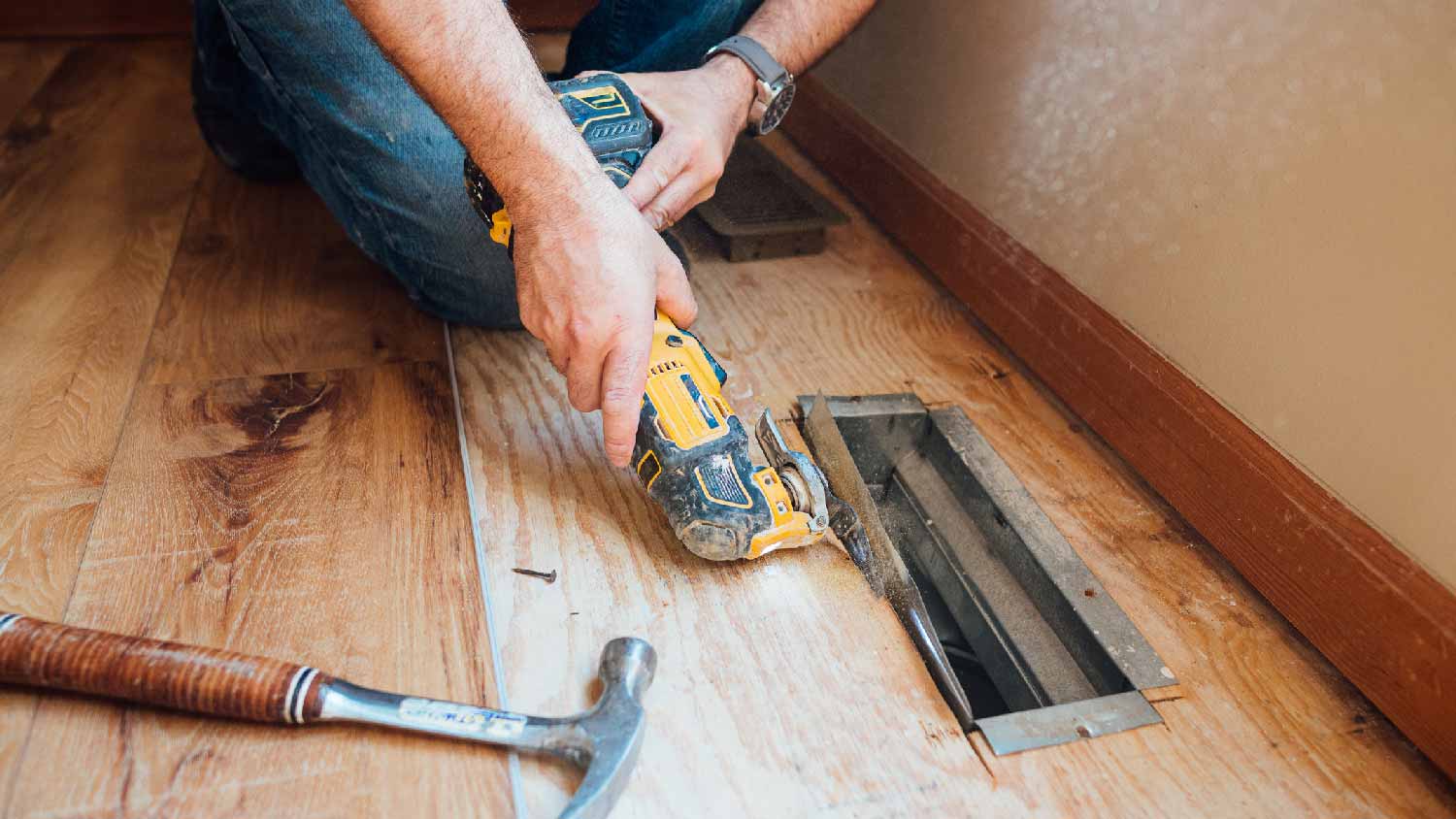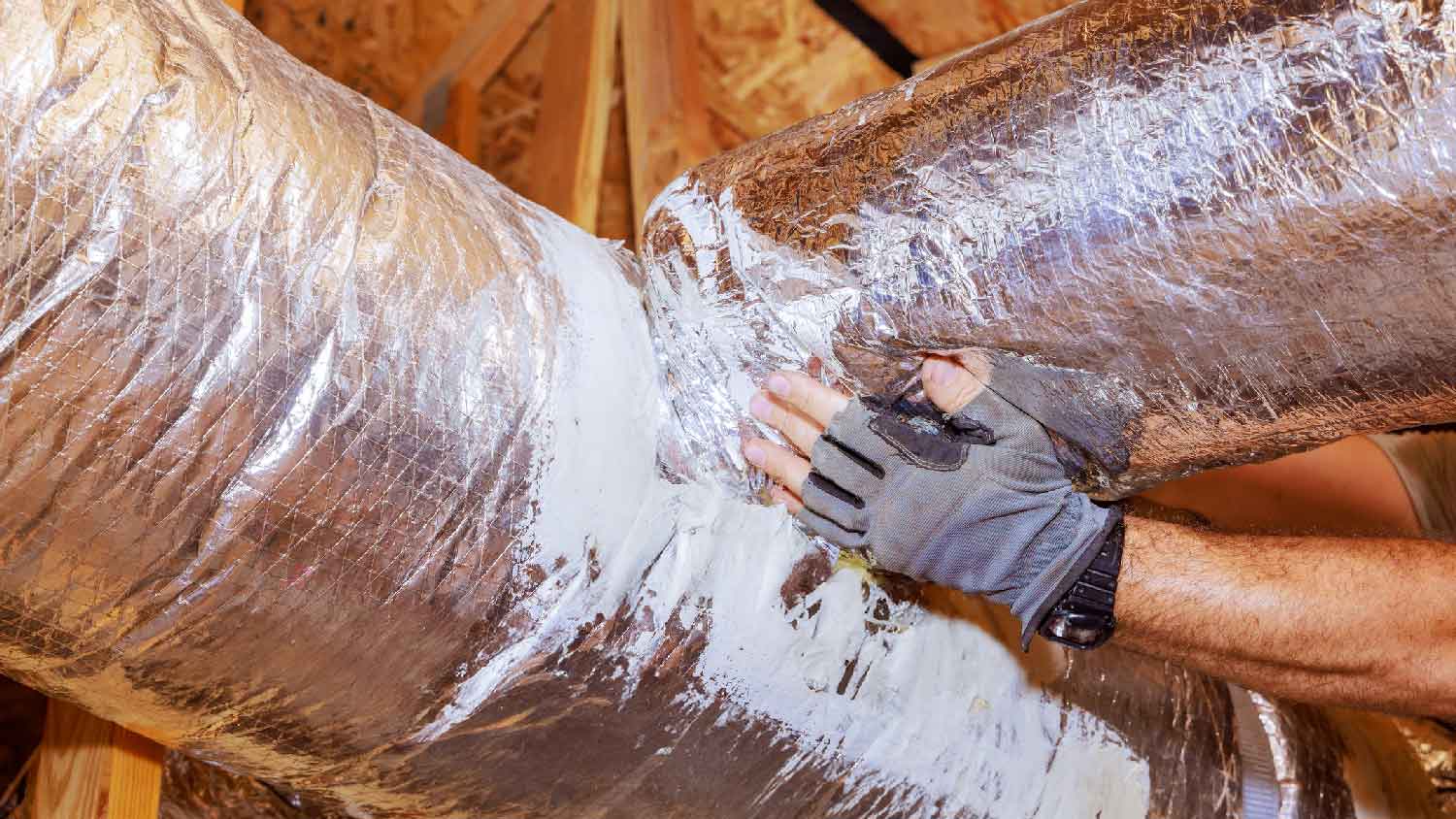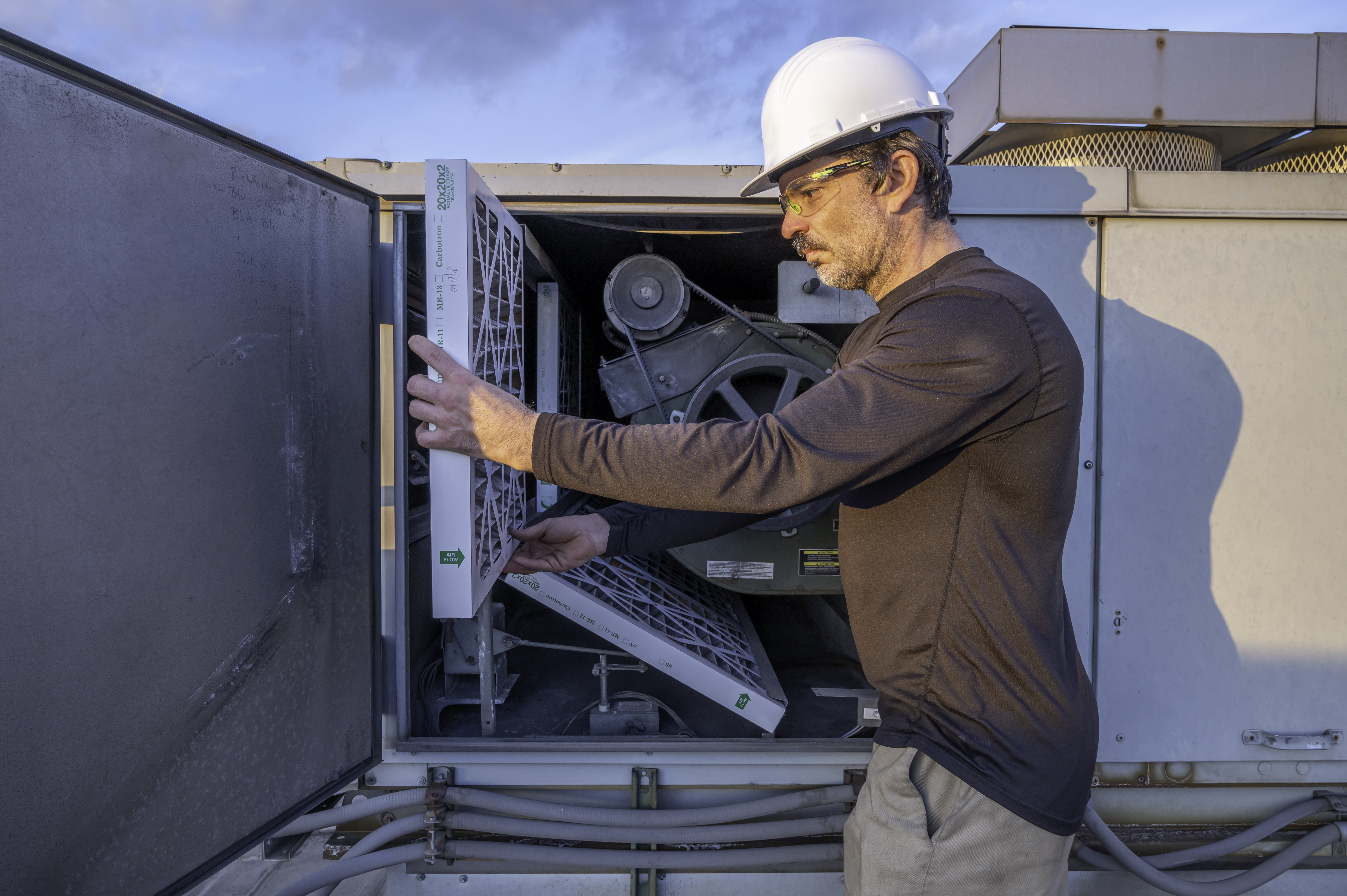
Discover the factors influencing air duct replacement costs in Atlanta, GA. Learn how to save money and make an informed decision for your home's comfort.
Know when it’s time for your old ducts to go


Air ducts do most of their work behind the scenes, but it can be obvious when they're on their last leg. Your energy bills could go up, your home might not cool down and heat up as efficiently, and strange odors and excessive dust may suddenly appear. So, how long does ductwork last, and when can you expect to see symptoms like these? Find out how many years your system has left before it's time for a replacement and what you can do to keep it going a little longer.
Ductwork can have a lifespan of 10 to 25 years, but most last between a decade and 15 years. But with proper maintenance, you can extend its lifespan. Tending to your ducts at the first sign of decay is the best way to prolong the need for a costly air duct replacement.
Three main factors influence the longevity of ductwork: the type of duct, how it was installed, and how well it's maintained.
There are four main types of ductwork, and each one has different benefits and limitations.
Rigid sheet metal ducts are the most long-lasting because they're rust-, mold-, and bacteria-resistant. However, because they aren't designed to adapt to temperature fluctuations, joints are likelier to crack and leak air as the ducts swell and shrink in hot and cold weather.
By contrast, flex ducts have no issues adapting to rising and falling temperatures because they’re constructed of loose, flexible materials like PVC or polyethylene. However, these same materials are also more likely to get squished or damaged, which can lead to airflow problems.
Finally, fiberglass and fiberboard ductwork have the shortest lifespan because both are susceptible to mold and bacteria and need much more frequent maintenance than the sturdier alternatives.
Whether or not ducts are properly installed can greatly impact how long they last. Improperly sealed seams, installations in tight spaces, or externally exposed ducts that aren't insulated can all cause problems down the line. These issues can be avoided by determining who does ductwork and thoroughly vetting them before signing any contracts.
While ductwork doesn’t require much special care to stay in working order, occasional maintenance is a must if you want it to survive beyond the 10-year mark. That includes annual checkups by a pro, as well as a couple of things you can do on your own, like checking for minor leaks if you suspect them and removing dust and debris from inside the ducts.

Since ducts are tucked out of sight, their problems aren’t as obvious as those of other malfunctioning home systems. Instead, watch out for a few less conspicuous signs to know when your ductwork is starting to fail.
If your home suddenly takes a long time to heat up or cool down, odds are there's a problem with your ductwork. To ensure that your ducts are the issue and not something else, turn on your AC or heating and check how the air flows out of your vents. If it's reduced or completely halted, your ducts are probably the source of the issue.
Maybe you haven’t noticed a change in how much time it takes to heat or cool your home, but you have noticed that your energy bill is suddenly way higher. Once you’ve eliminated other possible causes, like excessively running your HVAC unit, hire a duct installer near you to see if your ducts are causing this costly problem.
Are you constantly cleaning up mold and dust? Both may be coming directly from your ductwork, especially if it's made from a material that isn't resistant to bacteria or hasn't been cleaned in a while.

Now that you know how to find out if you have a ductwork problem, here’s what to do to remedy it or prevent it from happening in the first place.
Leaks in ductwork can reduce airflow into your home and raise energy bills. You can check for minor leaks yourself, but you'll need to call in a pro to assess larger leaks and make the necessary repairs. The cost to check for ductwork leaks ranges from $100 to $750 and is about $350 on average.
Blocking vents with furniture, electronics, appliances, or the like can all limit airflow and cause dust and debris to build up in your ducts. Clear these spots of all obstructions to keep your ductwork in good working order.
Scheduling an annual air duct inspection is the best way to ensure your ductwork survives multiple decades rather than just one. Pros will check for leaks, debris, or bends in the ducts, and recommend repairs based on what they find.
If you're willing to pay a small monthly fee, one, two, five, 10, and 20-year warranties and lifetime warranties are all available for HVAC systems. Depending on your choice, they include benefits like zero charges on small and large repairs and complete coverage for replacements caused by unexpected damages and natural wear and tear.
Completely overhauling your ductwork can be pricey, so it’s definitely worth repairing it first if that’s an option. However, if you’re dealing with a lot of damage, and the cost to repair air ducts is close to, if not the same as a replacement, you might be better off getting a new system instead.
From average costs to expert advice, get all the answers you need to get your job done.

Discover the factors influencing air duct replacement costs in Atlanta, GA. Learn how to save money and make an informed decision for your home's comfort.

What you’ll pay in Atlanta, Georgia, for furnace repairs depends on many factors. Here’s a breakdown of what can go wrong and the cost to fix those issues.

Discover the factors affecting HVAC zoning system cost, energy savings, DIY options, and expert insights. Get informed about your home’s heating and cooling.

There are few things more important to homeowners than keeping their AC systems running. Use this guide on AC leak repair to keep your home cool and comfy.

With so many types of furnaces out there, how do you know which one is best for you? Explore our guide to the five main types and get your home warmed up.

Wondering who to hire for swamp cooler installation? Learn when to call an HVAC contractor, electrician, or handyperson, and what to expect.